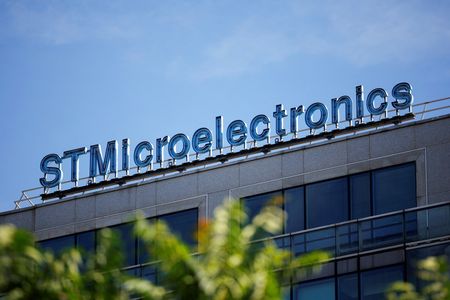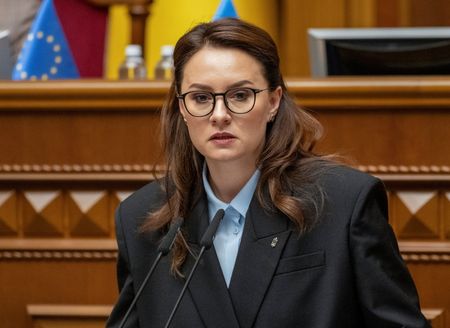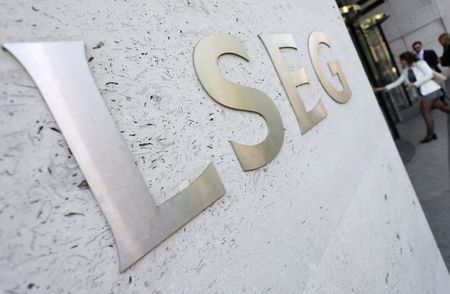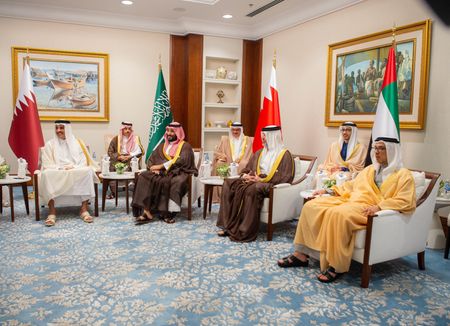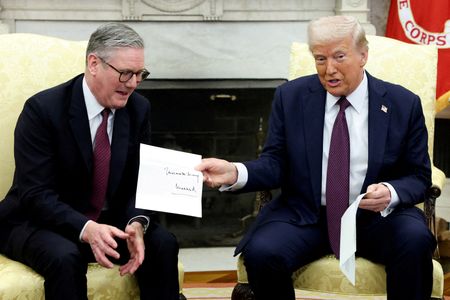By Anastasia Lyrchikova
MOSCOW (Reuters) -Kazakh gold miner Solidcore Resources expects high gold prices and stock sales to offset most of a production decline caused by sanctions-related disruptions to concentrate shipments to Russia, its CEO said.
Gold has rallied roughly 40% this year, hitting a record high of $3,673.95 an ounce last week on expectations of an imminent September U.S. interest rate cut.
Solidcore, formerly Polymetal International, sold its Russian assets in 2024 after its business there came under U.S. sanctions, but continues to send gold concentrate to Russia for processing with U.S. permission.
While high gold prices and sales growth nearly doubled the company’s net profit in 2024, the impact of sanctions on concentrate deliveries to Russia led to a 58% drop in profit in the first half of this year.
“But the situation has already significantly improved in July and August,” CEO Vitaly Nesis told Reuters, adding the company plans to sell down inventories in the first quarter of 2026.
“For 2025, the gold price will largely offset the 11% downward revision to the production forecast.”
He added that this year’s gold price rally is not sustainable. “I think there will be some decline,” he said. “I wouldn’t be surprised if (the price of gold) drops to $3,200 by the end of the year.”
He said record-high gold prices have prompted Solidcore, the second-largest gold miner in Kazakhstan, to postpone previously discussed acquisitions of copper and gold assets in Central Asia, which were unlikely to go through this year.
“Both of those deals are in bad shape, if not completely off. Sellers’ price expectations have surged along with the gold price, and we are not yet ready to significantly raise our offer,” he said.
Solidcore’s arrangement to send gold concentrate to Russia for processing under a tolling agreement at the Amursk pressure oxidation plant will continue until the launch of Solidcore’s own Ertis plant, scheduled for 2028.
The company expects to reach an agreement with international institutions in the first quarter of 2026 to secure $500 million–$600 million in project financing for the Ertis plant, with a deal potentially finalized in the second quarter, Nesis said.
(Editing by Gleb Bryanski and Jan Harvey)



